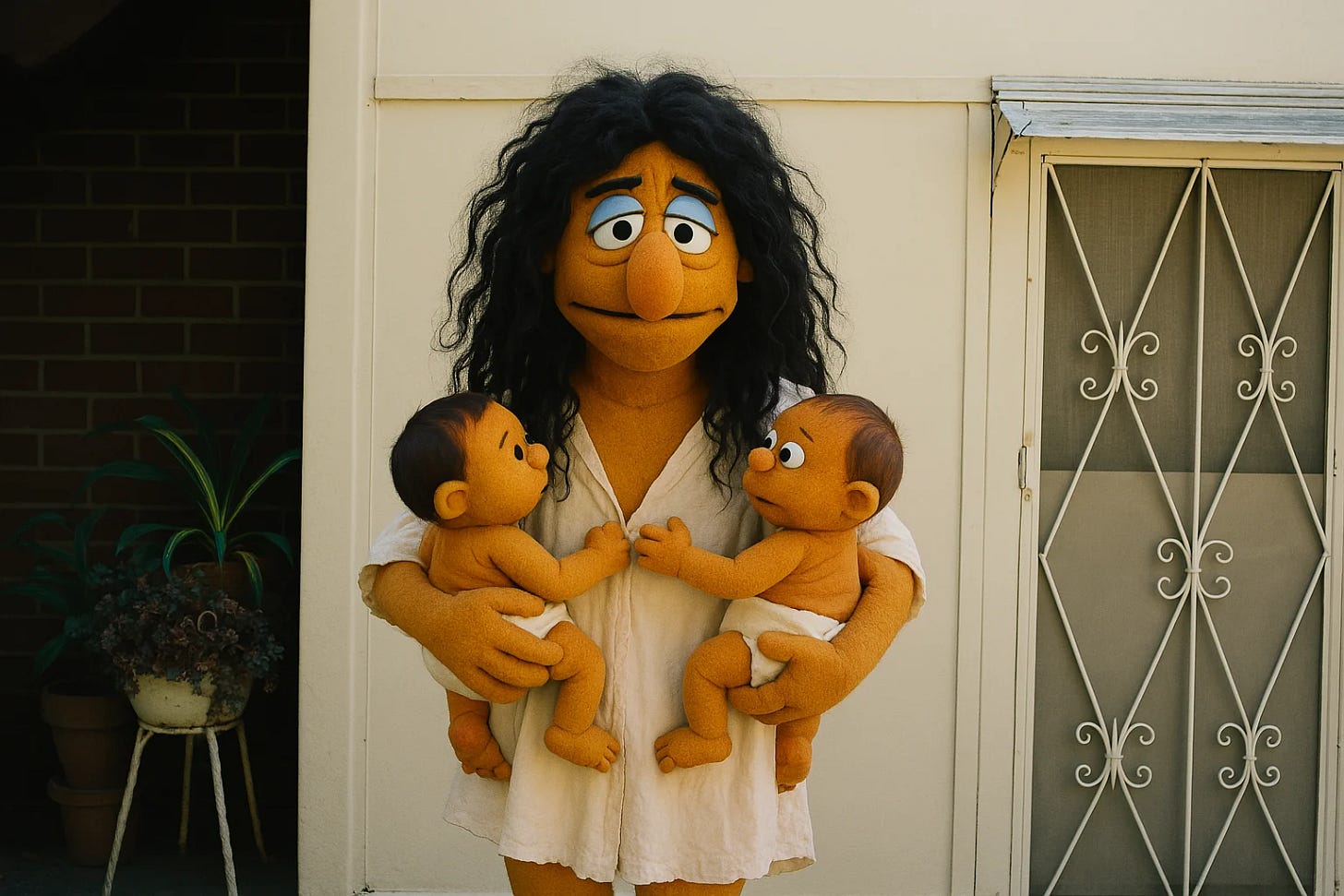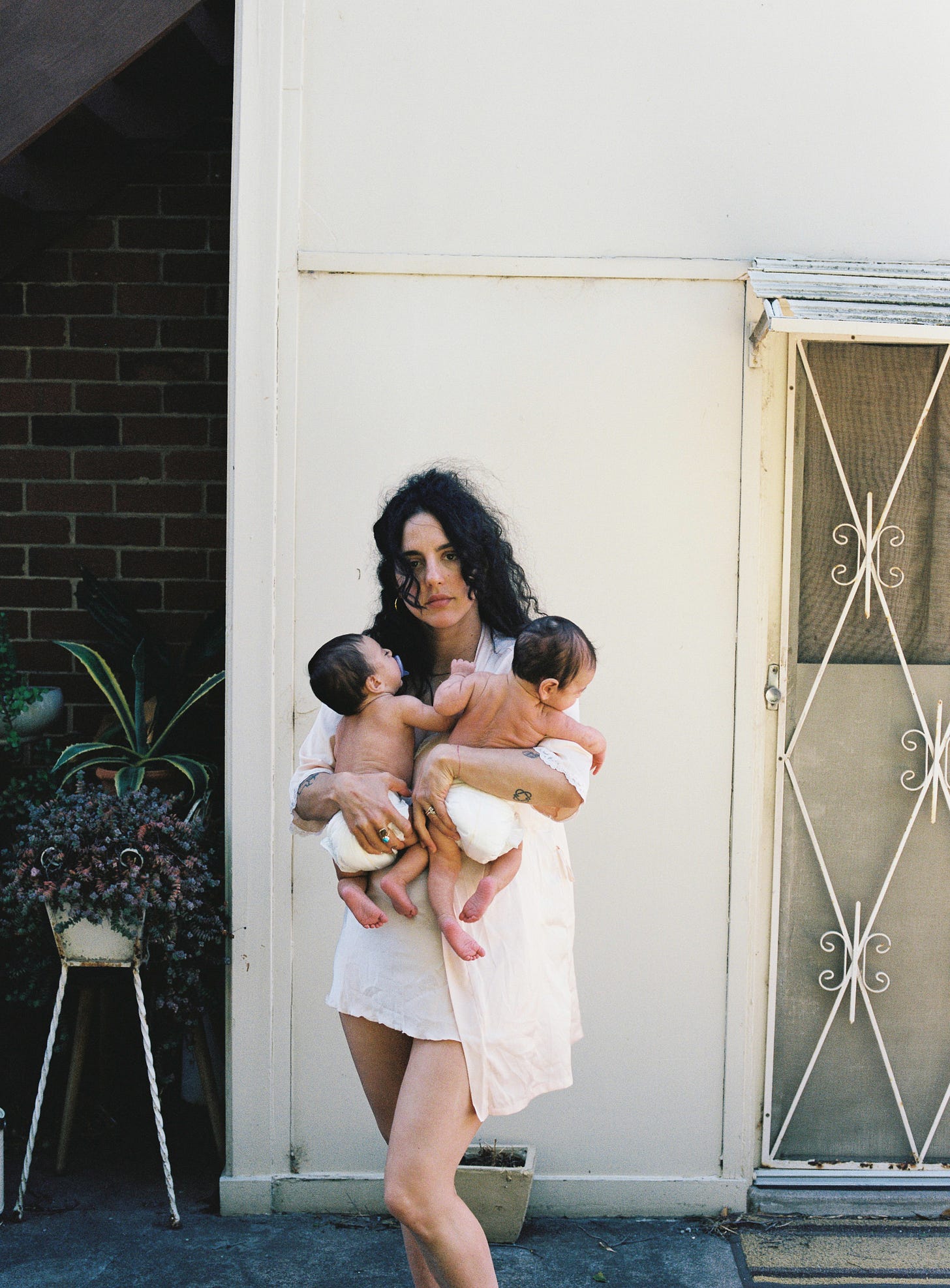The other day, I used AI to make Muppet versions of my family, and I was thrilled…it made me laugh and moved me. Seeing my loved ones reimagined in soft felt and googly eyes, I felt the same joy I did as a child watching The Muppet Show.
Jim Henson was one of my first creative idols. Drawn to the ambitious, I admired his ability to weave together art, storytelling, music, and film while exploring universal themes of what it means to be alive. At twenty, I studied puppet-making for a time, fascinated by the alchemy of fabric, movement, and personality. Bringing life to inanimate objects felt like magic
.
That strange and wonderful skill still finds its way into my work - even as recently as this weekend, when I constructed a whale lampshade for my son's first bedroom. A skeletal frame wrapped in fabric, thin enough for light to filter through softly, shifting slightly in the breeze from the open window.
But whilst I’ve been awake at night for feeds, I have scrolled- AND - The world I am a part of- the art world- is up in arms about AI-generated Studio Ghibli knockoffs, and I understood the rage. I spent years at university studying animation, learning the art of the frame, worshipping the work of Miyazaki, Henry Selick, Jan Švankmajer and Richard Williams. I watched the CD set that included Michel Gondry, Spike Jonze and Chris Cunningham an embarrassing amount of times, seeing how they go from concept to creation.
I am still a frame-by-frame animator, working in film, and now, an oil painter too- one deeply committed to classical techniques that I re-work. My paintings take weeks. My subjects pose for me, their shifting expressions and breath infusing the work with life. Each painting has its own atmosphere of music, podcasts, and films that accompany it. The work breathes. The work is lived.
And yet, I am torn. AI’s concept-building ability far exceeds my pea-sized brain. This very essay has been spell-checked and formatted with AI. I am darkly fascinated by its potential. There’s a gnawing in me that says I should be having a conversation with it, engaging with its possibilities. But what are the moral and creative implications? Does it ruin my adventuring? Does it make my devotion to the slow and the sacred obsolete? Will I become lazy? Will I stop playing?
I find myself tangled in the paradox of being a romantic artist with Renaissance sensibilities in a time when machines can spit out art in seconds. The act of making, to me, has always been a pilgrimage…something that requires patience, discipline, and an intimate relationship with the unknown. It may sound pretentious, but when I paint, I am in conversation with my subject, with the brush, with the canvas. I am the most at peace in those moments. There is failure, struggle, discovery. How does this translate to a world where an idea, once the seed of a long creative journey, can now be fully formed and rendered in a second?
I think of William Blake and his printing press (I use this example anecdotally a lot). His method, considered radical at the time, challenged the conventions of how art and poetry were produced. The purity of the individual hand was suddenly infused with mechanical repetition. Many saw it as the destruction of artistic integrity. And yet, Blake's illuminated books are now regarded as masterpieces, their very process part of their magic…I mean, people study this as a classical technique!
Is AI today’s printing press? Or is it something else, something more insidious? Printing, at least, still required the hand of the artist, still demanded that vision be shaped into form with labor. AI does not labor. It does not yearn, or toil, or revise. It simply produces. But then, I wonder…wasn’t that said about photography once? About digital painting? About synthesizers in music? Art, as history proves, always adapts. The question isn’t whether AI will become part of art - it already has. The question is: how do I, as an artist who aches to preserve the spirit of making, stand in relation to it?
I don’t yet have the answers, but I know I’m at the threshold of something. And as with all great shifts, the question is: do I step forward or resist? And if I do step forward, how do I ensure that I am still, in every sense, making? I want to know peoples thoughts…





Such a thought provoking piece of writing Anita. On No way I think that AI could have written it.
Loved this